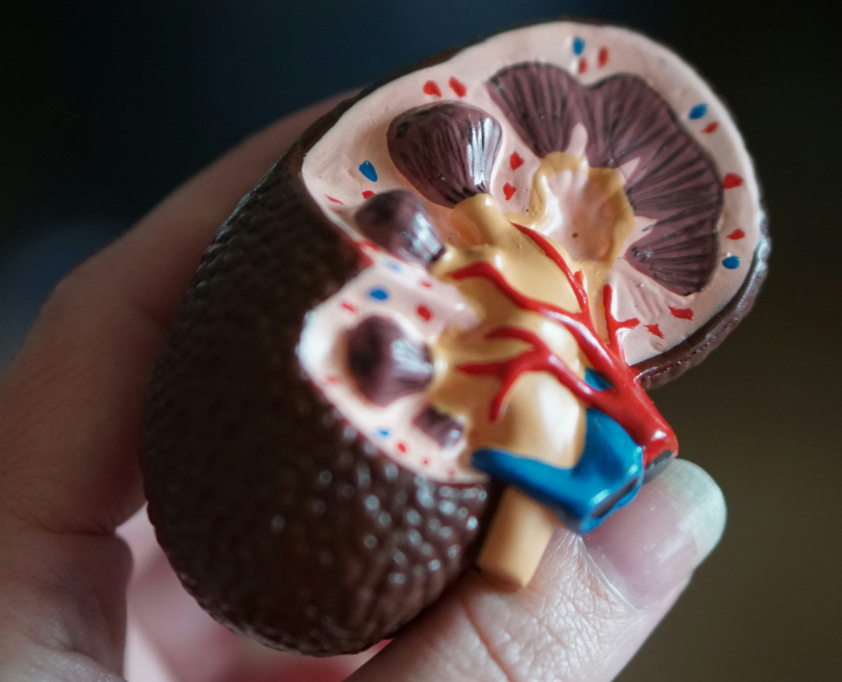Red blood cell (RBC) casts in the urine are a hallmark of glomerular bleeding, indicating damage to the glomerulus, the filtering unit of the kidney. They are primarily associated with glomerulonephritis but can occur in other conditions affecting the glomeruli or, rarely, in non-glomerular diseases with significant hematuria. Below is a comprehensive list of diseases and conditions known to be associated with RBC casts, based on current medical knowledge.
Diseases Associated with RBC Casts
1. Glomerulonephritis (Primary and Secondary)
RBC casts are most commonly seen in glomerulonephritis due to inflammation and damage to the glomerular basement membrane, leading to leakage of RBCs into the tubular system.
- Primary Glomerulonephritis:
- IgA Nephropathy (Berger’s Disease): Most common cause of glomerulonephritis; often presents with gross or microscopic hematuria, especially post-infection.
- Post-Streptococcal Glomerulonephritis (PSGN): Typically follows streptococcal infection (e.g., pharyngitis, impetigo); RBC casts with hematuria, proteinuria, and hypertension.
- Membranoproliferative Glomerulonephritis (MPGN): Associated with immune complex or complement-mediated injury; RBC casts with nephritic syndrome.
- Rapidly Progressive Glomerulonephritis (RPGN): Severe glomerular injury (e.g., anti-GBM disease, ANCA-associated vasculitis); crescent formation and RBC casts.
- Minimal Change Disease (MCD): Rarely causes RBC casts, as hematuria is uncommon, but may occur in atypical cases.
- Focal Segmental Glomerulosclerosis (FSGS): RBC casts are rare but can occur in advanced cases with glomerular damage.
- Membranous Nephropathy: Infrequently associated with RBC casts unless secondary to other glomerular injuries.
- Secondary Glomerulonephritis:
- Lupus Nephritis (Systemic Lupus Erythematosus): Classes III and IV lupus nephritis often show RBC casts due to proliferative glomerulonephritis.
- Henoch-Schönlein Purpura (IgA Vasculitis): Renal involvement (IgA nephropathy-like) leads to hematuria and RBC casts in 30–50% of cases.
- ANCA-Associated Vasculitis:
- Granulomatosis with Polyangiitis (GPA).
- Microscopic Polyangiitis (MPA).
- Eosinophilic Granulomatosis with Polyangiitis (EGPA, rare).
- Anti-Glomerular Basement Membrane (Anti-GBM) Disease (Goodpasture’s Syndrome): Severe glomerular bleeding with RBC casts; often involves lungs (hemoptysis).
- Infective Endocarditis-Associated Glomerulonephritis: Immune complex deposition causes hematuria and RBC casts.
- Cryoglobulinemic Glomerulonephritis: Associated with hepatitis C or lymphoproliferative disorders; RBC casts with vasculitis.
- Diabetic Nephropathy: Rarely causes RBC casts unless superimposed glomerulonephritis occurs.
- HIV-Associated Nephropathy (HIVAN): RBC casts may occur in advanced glomerular injury.
2. Systemic Diseases with Glomerular Involvement
- Systemic Sclerosis: Scleroderma renal crisis may cause malignant hypertension and glomerular damage, leading to RBC casts.
- Hemolytic Uremic Syndrome (HUS): Particularly atypical HUS (aHUS); glomerular microangiopathy can result in RBC casts, though less common than in glomerulonephritis.
- Thrombotic Thrombocytopenic Purpura (TTP): Rare, but glomerular involvement in severe cases may produce RBC casts.
- Malignant Hypertension: Severe hypertension damages glomeruli, causing hematuria and RBC casts.
- Mixed Connective Tissue Disease (MCTD): Glomerular involvement (lupus-like) may lead to RBC casts.
3. Infectious Causes
- Hepatitis B/C-Associated Glomerulonephritis: Immune complex-mediated glomerulonephritis (e.g., membranous or MPGN) can produce RBC casts.
- HIV-Related Glomerular Disease: Beyond HIVAN, immune complex glomerulonephritis may cause RBC casts.
- Subacute Bacterial Endocarditis: Focal or diffuse glomerulonephritis with RBC casts.
- Syphilis: Rare, but membranous glomerulonephritis may cause hematuria and RBC casts.
- Tubulointerstitial Nephritis and Uveitis (TINU) Syndrome: Primarily interstitial, but glomerular involvement can rarely produce RBC casts.
4. Drug- and Toxin-Induced Glomerular Injury
- Drug-Induced Glomerulonephritis:
- NSAIDs: Can cause minimal change disease or membranous nephropathy with rare RBC casts.
- Penicillamine: Associated with membranous nephropathy or crescentic glomerulonephritis.
- Hydralazine: Lupus-like syndrome with glomerular involvement.
- Checkpoint Inhibitors (e.g., nivolumab): Immune-mediated glomerulonephritis.
- Toxin-Related:
- Heavy metal poisoning (e.g., mercury, gold): Membranous or proliferative glomerulonephritis.
- Aristolochic acid (herbal nephropathy): Rare glomerular involvement with RBC casts.
5. Hereditary and Congenital Diseases
- Alport Syndrome: Hereditary nephritis due to collagen IV mutations; hematuria with RBC casts, progressing to renal failure.
- Thin Basement Membrane Disease (Benign Familial Hematuria): Microscopic hematuria with occasional RBC casts, though typically milder than Alport’s.
- Fabry Disease: Rarely, glomerular involvement may lead to hematuria and RBC casts.
- Sickle Cell Nephropathy: Glomerular hyperfiltration and ischemia can cause hematuria and, rarely, RBC casts.
6. Other Rare Causes
- Exercise-Induced Hematuria: Vigorous exercise (e.g., marathon running) can cause transient glomerular hematuria and RBC casts, though rare and self-limiting.
- Renal Vein Thrombosis: Can cause glomerular ischemia and hematuria with RBC casts in severe cases.
- Renal Infarction: Embolic or thrombotic events damaging glomeruli may lead to RBC casts.
- Interstitial Nephritis with Glomerular Involvement: Rare, but drugs (e.g., rifampin) or infections causing interstitial nephritis may secondarily affect glomeruli.
- Polycystic Kidney Disease (PKD): Rarely, hematuria from cyst rupture or glomerular involvement may produce RBC casts.
7. Non-Glomerular Causes (Rare)
While RBC casts are strongly suggestive of glomerular disease, heavy hematuria from non-glomerular sources can occasionally lead to RBC cast formation in the renal tubules:
- Nephrolithiasis (Kidney Stones): Severe hematuria from stone-related trauma may rarely form RBC casts.
- Renal Cell Carcinoma or Urothelial Tumors: Tumor-related bleeding with significant hematuria can mimic glomerular disease.
- Trauma to the Kidney: Blunt or penetrating trauma causing hematuria may rarely result in RBC casts.
- Papillary Necrosis: Seen in sickle cell disease, diabetes, or NSAID overuse; hematuria may lead to RBC casts.
Key Notes
- Diagnostic Significance: RBC casts are highly specific for glomerular or vascular injury within the kidney. Their presence on urine microscopy (ideally with phase-contrast microscopy) strongly suggests glomerulonephritis or a related condition.
- Associated Findings: RBC casts are often accompanied by dysmorphic RBCs (acanthocytes), proteinuria, and other urinary sediment findings (e.g., granular casts in chronic disease).
- False Positives: Rarely, heavy hematuria from non-glomerular sources (e.g., urologic bleeding) can lead to RBC cast formation, but dysmorphic RBCs are typically absent in these cases.
- Evaluation: If RBC casts are detected, further workup includes:
- Urinalysis and microscopy to confirm dysmorphic RBCs.
- Serum creatinine, complement levels (C3, C4), ANA, ANCA, anti-GBM antibodies, ASO titers, and hepatitis serologies.
- Renal ultrasound or biopsy in unclear or severe cases.


Leave a Reply